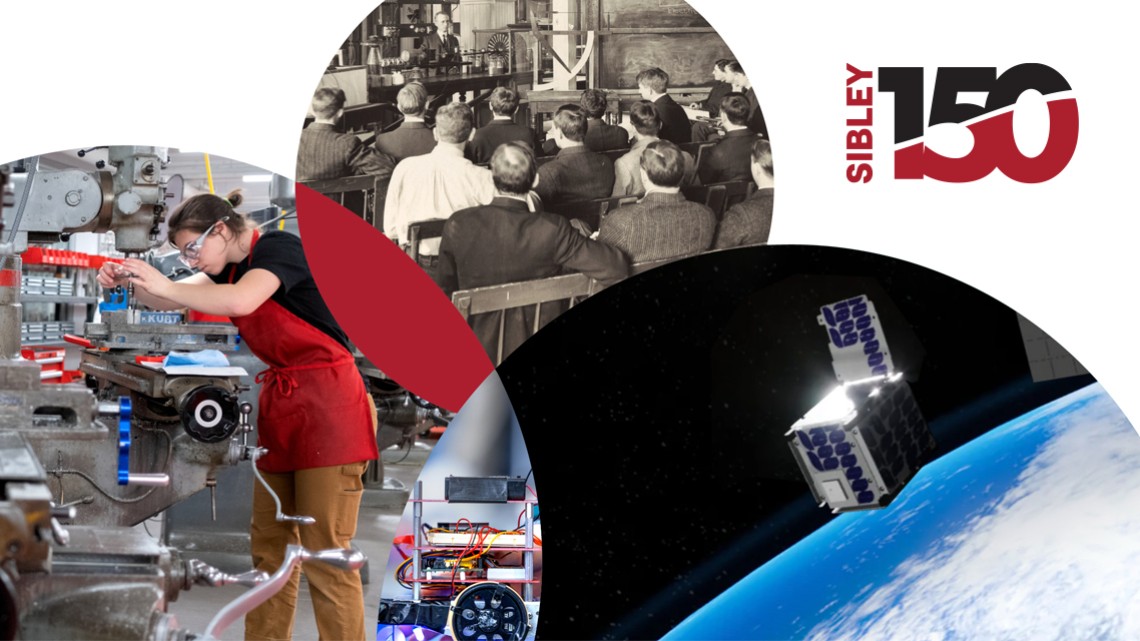
News directly from Cornell's colleges and centers
Sibley School celebrates 150 years of mechanical engineering
By Syl Kacapyr
The Sibley School of Mechanical and Aerospace Engineering is celebrating 150 years of mechanical engineering at Cornell with a year of festivities that reflect on the school’s distinguished past and look forward to its promising future.
The “Sibley150” celebration formally kicked off during Cornell Reunion, June 8-11. Alumni in attendance may notice Sibley150 banners decking light posts surrounding Upson and Rhodes Halls as well as the Duffield Hall atrium. Virtual and in-person events are being planned for the rest of the year through the first half of 2024.
While engineering and mechanic arts students were studying at Cornell as early as 1868, it wasn’t until the 1873-74 academic year that a four-year Bachelor of Mechanical Engineering degree was offered by what was then the Sibley College of the Mechanic Arts, according to a history written by Francis Moon, professor emeritus and historian in the Sibley School.
“We’ve come so far in the last 150 years,” said David Erickson, the S.C. Thomas Sze Director of the Sibley School. “The first Sibley graduates with mechanical engineering degrees invented milling machines and new techniques for grinding ball bearings. Our recent graduates are sending rockets into space and developing biomaterials to fight infectious diseases.”
In the late 19th century, the Sibley College distinguished itself from other colleges by offering an education that incorporated more than simply technical training, according to Moon.
“The Sibley College brought together the practical aspects of building machines along with the new engineering sciences and the testing of engineering materials,” said Moon, who added that by the end of the century, Cornell was producing nearly one in five mechanical engineers in the U.S. “Cornell was ahead of its time, and today the Sibley School continues to produce leaders for academia, industry and government.”
In the early 20th century, the automobile and airplane would change the Sibley School’s curriculum, and as new technologies were introduced over the years, research and education continued to evolve.
“Mechanical engineering has changed a lot in the last 150 years and that’s in part because we try to adapt to society’s changing needs,” said Atieh Moridi, an assistant professor who joined the Sibley School in 2019. “My students and I are using additive manufacturing to make novel materials for engineering-demanding applications from fusion reactors to biomedical devices.”
As part of the Sibley150 celebration the school has established the Sibley 300 Future Fund, an initiative aimed at shaping the future of mechanical engineering at Cornell for the next 150 years by supporting state-of-the-art research facilities, developing innovative interdisciplinary programs, and fostering collaborations that address society’s grand challenges.
Media Contact
Get Cornell news delivered right to your inbox.
Subscribe
